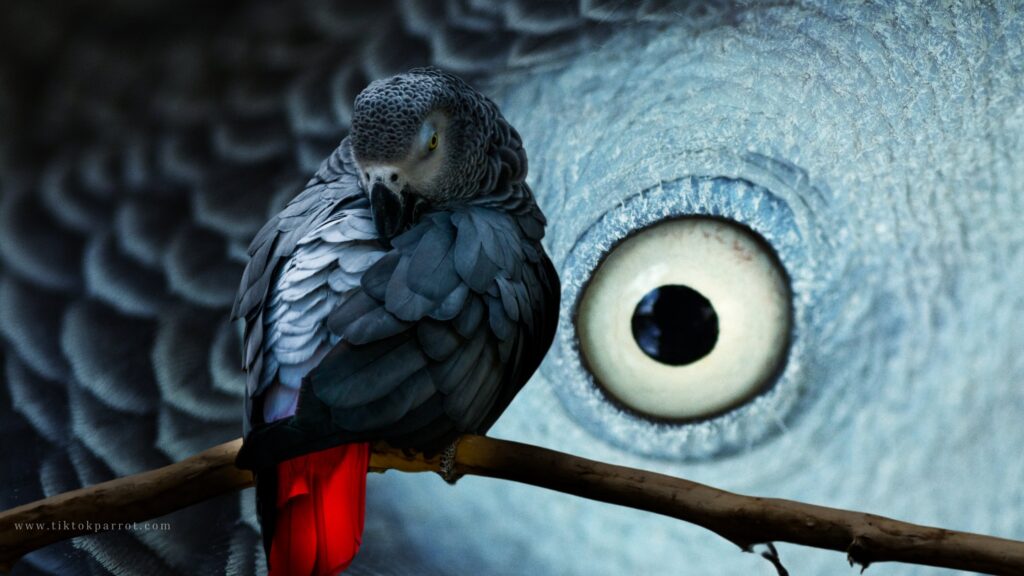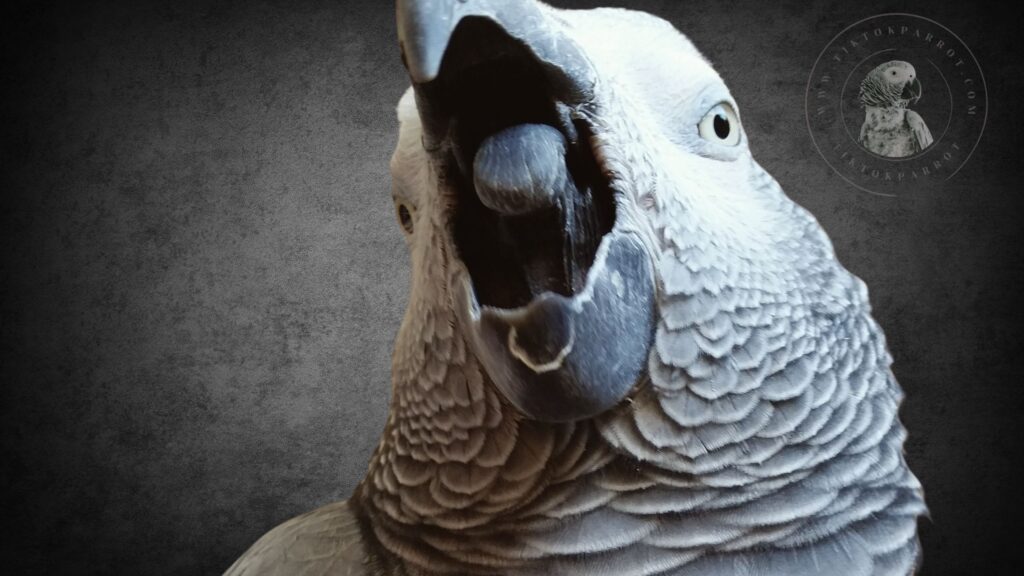Ah, the African Grey Parrot! Known for their intelligence, chatter, and, let’s be honest, a personality as colorful as their tail feathers (even though they’re grey!). While we often see them as charming pets in our homes, have you ever wondered about the challenges wild African Grey Parrots face in their natural habitat?
Table of Contents
Life in the wild isn’t all play—it’s filled with predators, environmental hazards, and the never-ending search for food. Let’s take a look at the hidden struggles these beautiful parrots endure every day in the forests of Africa.
The Tough Life of Wild African Grey Parrots: Surviving in the Wild!

Wild African Grey Parrots are fascinating creatures, known for their intelligence and ability to mimic human speech. However, their lives in the wild are far from easy. These magnificent birds face a variety of challenges that threaten their survival.
One of the biggest threats to wild African Grey Parrots is habitat loss. Deforestation and human encroachment are destroying their natural habitats, forcing them to compete for limited resources. As their forests disappear, they are forced to adapt to new environments, which can be challenging and stressful.
Illegal pet trade
Another significant threat is the illegal pet trade. The demand for African Grey Parrots as pets has led to widespread illegal trapping and smuggling. These birds are often captured from the wild and sold to the pet trade, disrupting their natural populations and contributing to their decline.
Climate Change
Climate Change is also impacting the lives of wild African Grey Parrots. Rising temperatures and changing weather patterns can disrupt their breeding cycles and food availability. Extreme weather events, such as droughts and floods, can further exacerbate these challenges.
Predation
Predation is another risk faced by wild African Grey Parrots. A variety of predators, including eagles, hawks, and snakes, prey on these birds. To protect themselves, they often form large flocks, which can deter predators and provide safety in numbers.
Despite these challenges, African Grey Parrots are resilient creatures. They have adapted to various environments and have developed complex social behaviors to survive. However, it is crucial to protect their habitats and combat illegal wildlife trade to ensure their long-term survival.
Conservation efforts
Conservation efforts are underway to protect these magnificent birds. Organizations are working to create protected areas, reintroduce captive-bred birds into the wild, and raise awareness about the importance of conservation.
By supporting these efforts, we can help ensure that future generations can continue to admire and appreciate these intelligent and captivating creatures.
How we can help?

Helping wild African Grey parrots involves supporting conservation efforts, raising awareness, and making choices that contribute positively to their environment. Here are several ways we can all play a part in supporting these incredible birds:
- Support Conservation Organizations
Many organizations work to protect wild African Grey parrots by combating illegal trafficking, preserving habitats, and conducting research on population health.
By donating to or volunteering with groups like the World Parrot Trust or African conservation initiatives, you can help fund their rescue, rehabilitation, and release back into the wild, as well as efforts to monitor and support wild populations. - Raise Awareness
Educating others about the challenges that African Grey parrots face in the wild can help reduce demand for these birds in the pet trade and encourage responsible ownership for those who already have them as pets.
Sharing information through social media, community groups, or educational events can help raise awareness about the importance of conserving their natural habitats and the legal and ethical implications of purchasing wild-caught parrots. - Advocate for Stronger Laws and Regulations
Many countries are part of CITES, which works to regulate the international pet trade and protect species like African Greys from being taken from the wild.
Advocating for stricter enforcement of these regulations and encouraging local lawmakers to prioritize animal and habitat protection are crucial. Supporting petitions and contacting representatives to promote tougher laws against illegal poaching and deforestation in Africa can make a big difference. - Purchase Sustainable Products
Logging and agriculture are two significant threats to African Grey parrots’ habitats. By choosing products made with sustainable practices, such as shade-grown coffee or Forest Stewardship Council (FSC) certified wood products, you can reduce the demand for deforestation in their native regions.
Look for eco-friendly, sustainable options for paper, furniture, and even food items that come from African countries where these parrots live. - Practice Responsible Pet Ownership
If you have a pet African Grey or are considering adopting one, always prioritize adopting from responsible breeders or rescues rather than purchasing wild-caught birds. Additionally, educate yourself on their specific needs and behaviors to provide a healthy and stimulating environment for them.
Responsible ownership helps reduce demand for wild parrots, allowing more African Greys to remain in their natural habitats. - Help Protect Their Habitat
Deforestation and habitat fragmentation are among the greatest threats to wild African Grey parrots. Supporting reforestation programs and conservation initiatives that focus on maintaining African forests can help ensure these parrots and countless other species have a safe, sustainable home.
Some programs allow individuals to “sponsor” acres of forest or specific reforestation projects, which directly contributes to habitat preservation. - Spread Knowledge about Climate Change Impacts
Climate change can alter African Grey parrots’ ecosystems, affecting their food sources and nesting areas. By raising awareness and supporting policies aimed at reducing greenhouse gas emissions, you can help mitigate some of these impacts.
Small lifestyle changes, like conserving energy, reducing waste, and supporting green initiatives, all contribute to the bigger picture of climate action, benefiting ecosystems worldwide.
Together, these steps can create a positive impact on wild African Grey parrot populations, ensuring they can continue to thrive in their natural habitats. Every effort counts, from personal choices to supporting global policies—helping secure a better future for these intelligent, unique birds.
My Final Thoughts
So, yeah we can say wild African Grey Parrots face daily struggles, from dodging predators to competing for shrinking forest habitats. Despite these challenges, these resilient birds continue to adapt and survive. It’s a testament to their intelligence and resourcefulness—qualities we admire and why they’ve become beloved companions to so many of us.
So, the next time you see an African Grey parrot, think of their cousins in the wild, living the tough (and often dangerous) life they do.
Do you have a story about an African Grey or thoughts on how we can protect these magnificent creatures? Drop a comment below—let’s chat! Share your thoughts and experiences in the comments below.
If you liked this blog, please share it with your family and friends who might also find it helpful. If you love African Greys, join our community of Grey owners! You can meet other owners, share tips and learn from each other.
Stay safe and much love!



